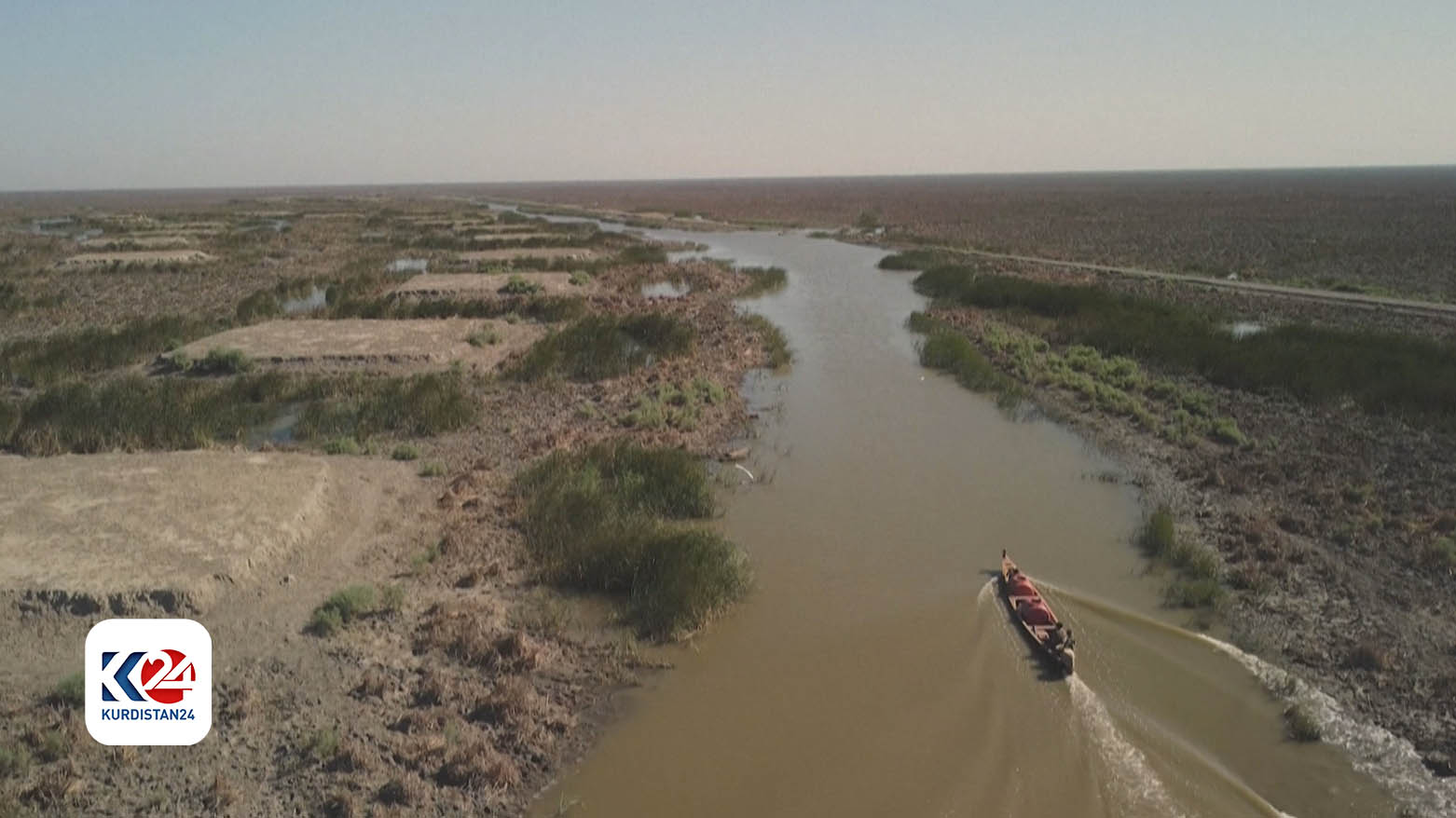Iraq faces severe environmental crisis: livestock and fish populations in peril due to water shortages
Environmental degradation is largely attributed to pollution and drastically reduced water levels, severely impacting Iraq’s marshlands and resulting in the deaths of numerous animals, particularly fish.

ERBIL (Kurdistan24) – Iraq is grappling with an escalating environmental crisis that threatens its livestock and vital natural resources, driven by water withdrawals from neighboring countries, rising temperatures, and severe drought. The situation has reached a critical point in Dhi Qar province, where local authorities report a staggering 60 percent decline in fish populations within the marshlands.
Environmental degradation is largely attributed to pollution and drastically reduced water levels, severely impacting Iraq’s marshlands and resulting in the deaths of numerous animals, particularly fish. The crisis has been exacerbated by Turkey's diversion of the Tigris and Euphrates rivers, critical sources of water for Iraq. Increasing water acidification and the destruction of reeds and marshland habitats have created an environment increasingly hostile to wildlife.
A delegation from the Dhi Qar governor's council recently conducted a field visit to assess the impact of the deteriorating conditions on the lives of thousands of families who depend on agriculture and fishing for their livelihoods. Yas Khafaji, the spokesman for the governor's council, highlighted the alarming situation, stating, "The marshlands of Dhi Qar have lost 60 percent of their fish resources due to decreased water levels and the death of numerous livestock and other animals."
Once teeming with life and requiring boat transportation due to regular flooding, the marshlands have now transformed dramatically. Water levels, which used to reach depths of two meters, have plummeted to less than 15 centimeters in some areas, with other regions completely dry and abandoned.
The agriculture and livestock sectors, the primary sources of income for the local population, are now under severe threat from the combined effects of climate change and water shortages. According to the Iraqi General Directorate of Dams, rainfall contributes only 30 percent of the country’s water supply, while the remaining 70 percent comes from rivers originating in Turkey and Iran. These crucial water sources are also experiencing drought and shortages, further compounding Iraq’s environmental crisis.
As Iraq continues to face these unprecedented challenges, the urgency for collaborative regional solutions and sustainable environmental policies has never been greater.